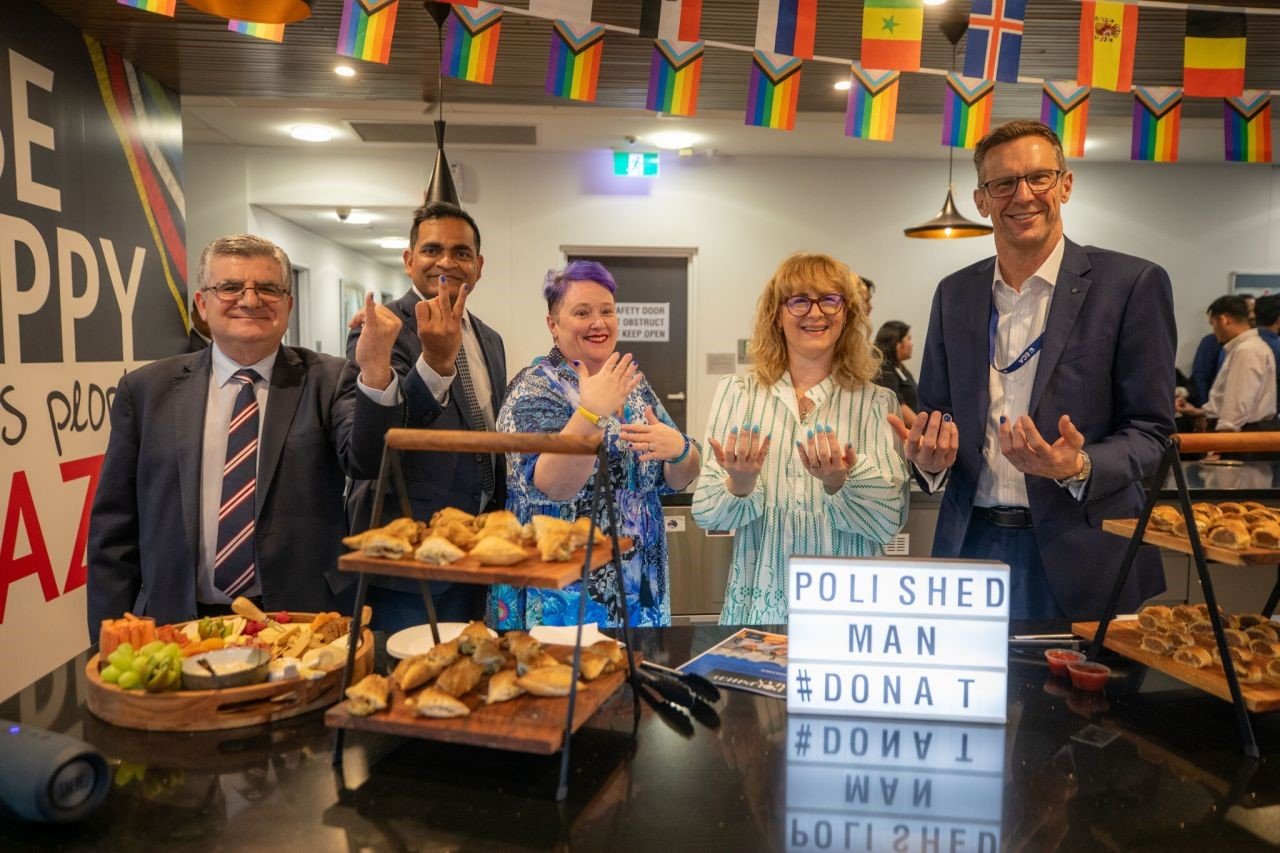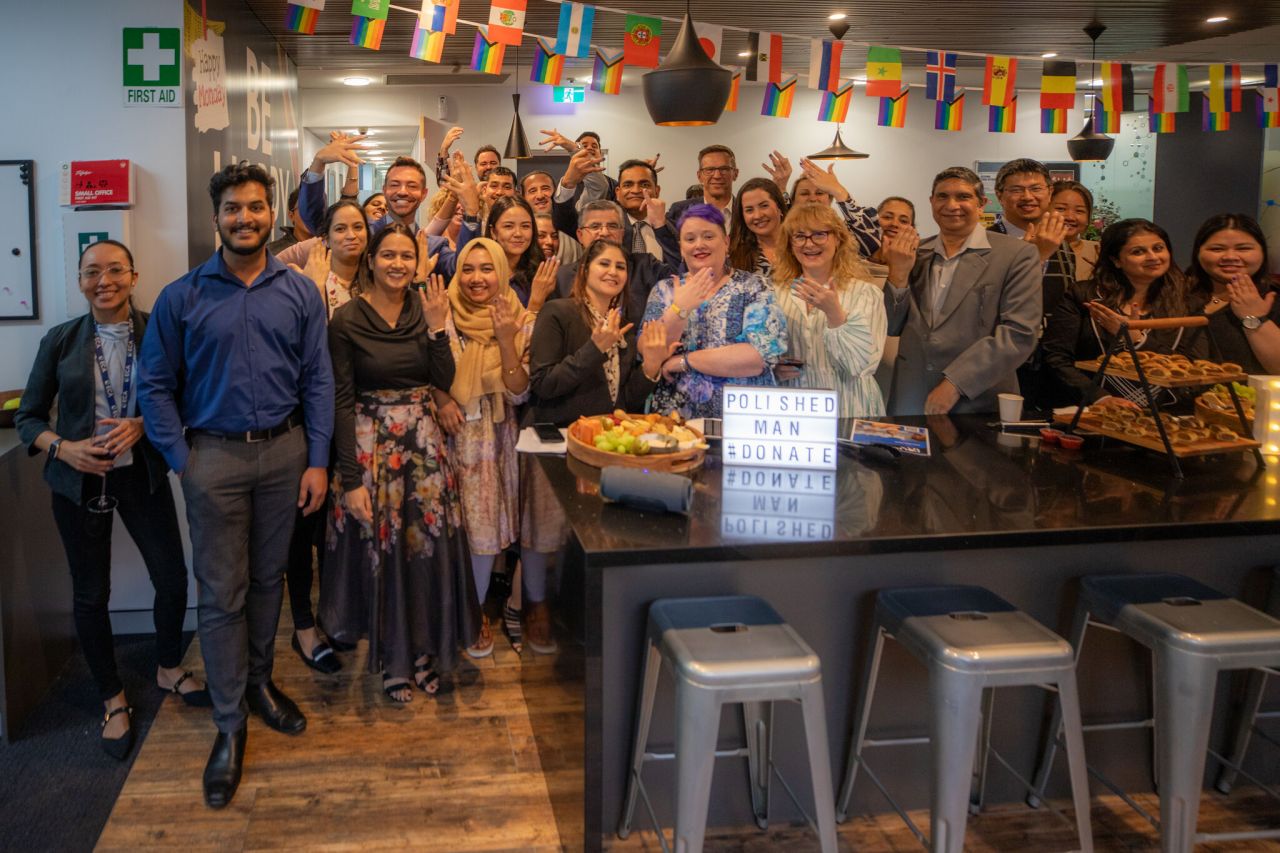

At CHS, we believe in creating a safer world for everyone, especially for women and children. This October, we are proud to join the Polished Man campaign, which raises awareness and funds to end violence against women and children.
Together, we can make a difference. 💙💙
Sexual harassment can be defined as:
Sexual harassment is any unwelcome sexual behaviour which is likely to offend, humiliate or intimidate. It has nothing to do with mutual attraction or friendship. Examples include:
Sexual assault is a legal term used to describe a range of sexual offenses, from showing indecent images to another person, to kissing or touching them, as well as penetration of the person’s body with a body part or object.
If someone does something sexual that makes you feel uncomfortable or touches your body when you do not want them to, it may be a sexual assault.
“Sexual assault’ is often called other names like: Sexual abuse, rape, indecent behaviour, indecent assault, sexual molestation, incest, child sexual abuse, child sexual assault, touching, ‘feeling up’, sexual harassment.
If someone does something to make you feel that you have been assaulted, you can seek help from health and counseling services, including sexual assault services (see contact details below). This applies even when you don’t want to report to the police, or if you have reported to the police, but they do not believe that a crime has been committed. If you are not sure whether you have been sexually assaulted or not, you can contact a sexual assault service or legal service. There are specially trained people who can help you understand what has happened to you and what your options are. Some people blame victims or make victims feel that they somehow asked to be raped because of how they looked or dressed, or where they were at the time. This is not right. It is never a victim’s fault. Sexual assault is always a crime.
Giving your consent means you knowingly and freely agree to take part in sex or sexual activity. Consent must be voluntary, and informed and you can change your mind at any time. Informed consent means you understand what you are giving consent to and there is nothing preventing you from indicating if you agree, decline, or change your mind to take part in sex or sexual activity.
Consent can be withdrawn by any party at any point and must be voluntarily given and is not valid if a person is being subjected to actions or behaviours that elicit emotional, psychological, physical, reputational, financial pressure, threat, intimidation, or fear (coercion or force). Consent to engage in one sexual activity, or past agreement to engage in a particular sexual activity, cannot be presumed to constitute consent to engage in a different sexual activity or to repeat a sexual activity. Consent cannot be given by a person who does not have the capacity to give consent, including those who are intoxicated, unwell, distressed or otherwise disadvantaged.
In the context of sexual relations and this policy ‘consent’ and ‘consensual’ mean that:
In the context of sexual relations and this policy, factors not involving consent:
https://www.1800respect.org.au/violence-and-abuse/sexual-assault-and-violence/consent
Gender-Based Discrimination/ Violence can be defined as;
For any grievance refer to the Student Academic Grievance and Appeals Policy & Procedures or Student Non-Academic Grievance and Appeals Policy & Procedures.
Any critical incident, sexual harassment, sexual assault and or gender based violence can be reported via sexual harassment form or via the critical incident report form.
For more information see Equity and Diversity Policy and Sexual Harassment and Sexual Assault Prevention Policy and Procedure.
Sexual Health
“A state of physical, emotional, mental and social well-being in relation to sexuality; it is not merely the absence of disease, dysfunction or infirmity. Sexual health requires a positive and respectful approach to sexuality and sexual relationships, as well as the possibility of having pleasurable and safe sexual experiences, free of coercion, discrimination and violence. For sexual health to be attained and maintained, the sexual rights of all persons must be respected, protected and fulfilled.”
(WHO, 2006a)
You can access a range of sexual health services by making an appointment with your GP who can support you with any sexual health concerns. Services can include and are not limited to STI testing, PrEP and PEP assessments and prescribed medication, Contraception options and Cervical screening.
Further information on Sexual Health can also be found for each state via the below links:
New South Wales: New South Wales Health – https://www.sshc.org.au/
Queensland: Queensland Health – https://www.health.qld.gov.au/clinical-practice/guidelines-procedures/sex-health/services
CHS has zero tolerance for sexual assault and harassment. We maintain the right of every student and staff member to feel safe and respected at all times on campuses. The College is committed to supporting students and staff affected by sexual assault or harassment, gender-based discrimination or violence regardless of where and when it takes place.
See below:
If you would like to speak to someone outside of the College you can access the College’s external counseling service, Converge International, who have counselors and psychologists trained to support victims of sexual assault and sexual harassment call 1300 687 327. Calling or contacting the service does not mean you are reporting the incident. These services offer support and help and will be able to provide you with the information you may require if you decide you do want to report the incident. The College’s external counselling services are available to all students and staffs. Any students or staff impacted can receive up to 10 confidential counselling sessions free of charge.
For immediate support anywhere in Australia you can also contact Beyond Blue (phone, chat online and email services available). In an emergency, Lifeline provides 24-hour telephone and online chat crisis support.
Beyond Blue
Beyond Blue is an independent, not-for-profit organisation working to increase awareness of depression, anxiety and related disorders throughout Australia. Beyond Blue works with health services, colleges, schools, workplaces, universities, media and community organisations, as well as people living with these disorders, to bring together their expertise. For students dealing with depression, anxiety and related disorders, the Beyond Blue website has excellent resources.
Lifeline
Lifeline has a 24/7 telephone counselling service and can be contacted on 13 11 14. Lifeline telephone counsellors are ready to talk and listen, no matter how big or how small the problem might seem. They are trained to offer emotional support in times of crisis or when callers may be feeling low or in need of advice.
Health and Other Emergency Contacts
In Australia if you are feeling unwell or have a minor injury, your first point of contact is a general practitioner (GP) who works at a health service or doctors’ surgery. A GP can assist you with a wide variety of medical conditions from colds and flu to minor injuries such as sprains or cuts, to travel vaccinations and sexual health checks. If needed, a GP can provide a script for medication or write a referral letter for you so you can see a specialist.
13SICK National Home Doctor Service
13SICK National Home Doctor Service is an after-hours home doctor service for when your local GP is closed. Overseas students who have Overseas Student Healthcare Cover (OSHC) with Allianz, NIB, Medibank Private or BUPA will not be charged a fee for the home doctor visit. For other types of membership, payment is required to be made upon booking. The service can provide a receipt for your home doctor visit, which you can log with your insurer for a refund.
All reports of sexual harassment, sexual assault and or gender based violence are treated in the strictest confidence and privacy.
Informal reporting to the College: please speak to the Student Services Coordinators above who will help you.
Formal reporting via the sexual harassment form or the critical incident report form
Anonymous reporting: If you would like to report an incident anonymously please complete this form and a member of the SASH Taskforce will be in contact with you within 24 hours. Please note; submissions for this form are monitored only Monday-Friday 9am-5pm (AEST), excluding public holidays. If it is an emergency please contact 000.
For information on formal reporting to the police please click the link below:
For further information on reporting and disclosing the incident please refer to Section 8 of the Student Sexual Harassment and Sexual Assault Policy and Procedures.
What happens after you report?
The College recognises that reporting incidents of sexual harassment or sexual assault is extremely confronting. Our team will do our best to ensure you feel safe and supported throughout the process.
Our Student Services Co-ordinator managing your case will check-in with you to discuss what ongoing welfare and academic support you want to receive, and we’ll try our best to provide it or help to facilitate it. You’re welcome to have a support person with you or ask us for any additional support you may need.
See below:
| Members: | Title |
|---|---|
| Dr Scott Dickson | CEO, Higher Education (Chair) |
| Mr Matthew Farago | General Manager, Higher Education Quality |
| Ms Lena Shifrina | General Manager – Higher Education Operations |
| Ms Julia Ford | Human Resources Manager |
| Dr Michelle Cavaleri | Dean, Academics |
| Ms Danica Pinto | Registrar, Student Services |
| Pia Pohankar | Student Services Coordinator (Sydney) |
| Darsha Hollu Pathirage | Student Services Coordinator (Brisbane) |
| Dr Mohamed Khalifa | Course Coordinator |
| Laura Marcela Barajas Barajas | Student Representative |
| Saugat Rawal | Student Representative |
The Sexual Assault and Sexual Harassment Taskforce Committee undertakes the following responsibilities:
The College is committed to ensuring a safe learning and working environment that is free from sexual harassment and sexual assault and where all members of the College community are treated with dignity, courtesy, and respect.
The following principles form the foundation for our commitment:
The safety and well-being of students, staff, contractors, and visitors are of paramount importance to the College. The priority of the College will be the safety and well-being of the person disclosing or formally reporting sexual assault or sexual harassment.
The College’s response to a person who has experienced sexual harassment and or sexual assault is one of compassion, empathy, and support.
The College will treat any disclosure or formal reporting of Sexual Harassment or Sexual Assault with the utmost confidentiality and with respect to the privacy of the student or staff member and the alleged perpetrator.
The Policy and Procedures related to SASH applies to all students, staff, contractors, and visitors, including those who identify as intergender, transgender and gender diverse, LGBTIQ, Aboriginal and Torres Strait Islander, with a disability, culturally and linguistically diverse, and international. The College recognises that students from other countries may have cultural and language proficiency impediments to disclosing or reporting sexual harassment and sexual assault. This matter is addressed at all international student orientation sessions, information sessions, and contact staff training.
The College is committed to ensuring the equitable and open implementation of this Policy in accordance with College’s Equity and Diversity Policy.
Consent Matters is free online interactive course that uses activities, quizzes and relatable character scenarios to explore the nature of sexual consent, how to identify when consent needs to be given and/or received, when consent should not be given and how to look after others. Commencing students will gain access to the Consent Matters course in their first study period, information is sent to students via email. Consent Matters is delivered via Canvas and is available here.
The College collaborates with external sexual assault service providers for the first response. All the key staff including student support and course co-ordinators are provided with CASA House and Responding to Disclosures of Sexual Violence training program.
